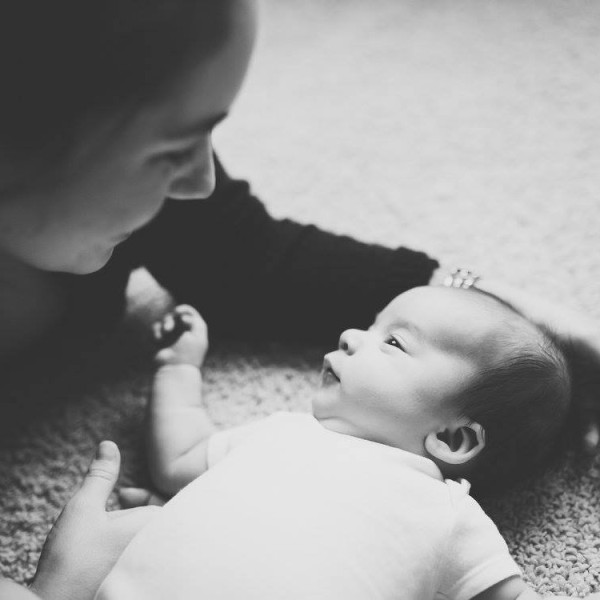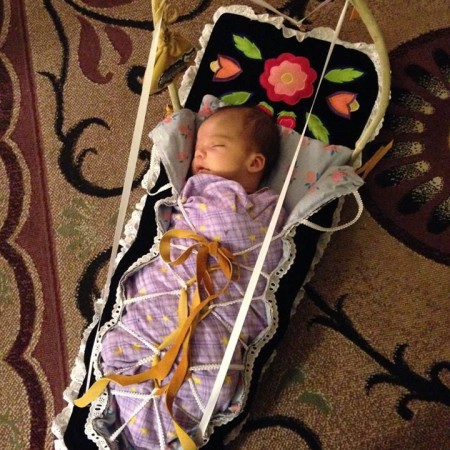Vancouver women create Indigenous doula collective to support mother-centered birth care
By: Zoë Ducklow and Leonardo Coelho

By: Zoë Ducklow and Leonardo Coelho
Feature image photo credit: Britney Gill
A woman from the Squamish Nation is leading a resurgence of mother-centered birth care in B.C. by helping start a new Indigenous doula collective which aims to support women in the powerful experience that birth can be.
“For Indigenous people, birth is supposed to be a ceremony,” Jessica St. Jean says. “A life-giver is bringing a whole new life into the world.”
Midwifery was illegal in Canada for much of the 20th century, with doctors and nurses in sterile hospital rooms being the expected place for birth. But this isn’t how it’s always been, nor how it should remain according to St. Jean.
“I find a lot of people are so afraid of their bodies and the birth process that they need to be in the hospital,” she says. “That’s really a socialization issue of birth being so negatively portrayed in our society.”
St. Jean and three other Indigenous women are starting the Indigenous doula collective this spring. Their goal is to support women in determining their own birth care. They call it ekw’í7tl (pronounced ek-WAIT-ul) which means “family” in the Squamish language. The doulas in the collective will be Indigenous, but any mother can be a client.
Danette Jubinville is a new mother and another founding member of the collective. Her daughter Keestin, which means “strong wind” in the Cree language, was born in December after a night of laboring by candlelight during a power outage, and an early-morning drive to the hospital.
“I asked the midwives if we could still do the home birth with no power. They said they hadn’t done it before but they were willing to try,” Jubinville says.
She had two Indigenous doulas, one of whom she relied on for spiritual guidance and cultural teachings. One of her doulas shared Anishinaabe language words and teachings about birth with Jubinville, and advised her on traditional medicines and ceremonies during pregnancy.

Indigenous teachings about birth and pregnancy are not set-out in a curriculum; they rely on relational connections and teachings passed down through generations. If family relationships are disrupted, so is the passing-on of knowledge.
“If you think about residential schools and the project of colonization, it really targeted families and the relationships between parents and their children,” she says.
“The effect is profound and violent and has intergenerational impacts in our families.”
For Jubinville, having an Indigenous doula meant she could learn some of these ancestral teachings that she did not learn growing up. The resurgence of Indigenous birth work is important to her, not only because she just went through it, but because she sees it as the heart of Indigenous cultural resurgence.
“That’s why this work to reclaim our birthing traditions and our traditional parenting methods is so important,” she says. “Because they tried to take these things away from us.”
Not only have residential schools interfered with family relationships, but Canada’s evacuation policy in rural Indigenous communities separates fathers and other family members from the birth.
The term “evacuation” is a blunt description of government policy for rural Indigenous communities. A Statistics Canada survey showed that almost 29 per cent of Indigenous mothers in B.C. travelled away from home to give birth.
Canadian government policy around pregnant Indigenous mothers is structured to remove women in rural communities to a large city, like Prince George or Vancouver, up to a month before their due date. They are then alone without family support in this difficult and emotional time.
Jubinville and St. Jean hope ekw’í7tl will be able to connect with pregnant Indigenous women who are in this situation, to help them to feel less separated from their community.

The B.C. government says it’s making an effort to improve maternal health care among Indigenous people. It and the First Nations Health Authority gave a one-time grant of $360,000 last September to the B.C. Association of Aboriginal Friendship Centres (BCAAFC) to pay for doulas for Indigenous women.
Since September, the Doulas for Aboriginal Families program has paid for over 100 Indigenous families to have a doula. But once the money runs out, the program will end.
Program administrator Amanda Engen is in the process of looking for renewal opportunities. Unlike midwives, doulas are not covered by provincial healthcare, and need to be paid for by clients directly.
“On average it would be $715 to $900 for a birthing package,” Engen says. “That would include prenatal, labour and birth time, 24/7 phone access and it would include some postpartum for a typical birth package.”
There are 82 doulas pre-approved by BCAAFC, but Engen estimates only five of them are Indigenous. Doula certification is part of the reason this number is so low. Jubinville says birth coaches and midwives have long been part of Indigenous communities, but may not have certification recognized by government programs.
Leonardo Coelho is a journalist and sportscaster. He’s easily found at Springsteen concerts carrying the Brazilian flag. Follow him on Twitter @lcleonardo2
Zoë Ducklow is a journalist who loves stories and oceans and tweets about other things @zoeducklow